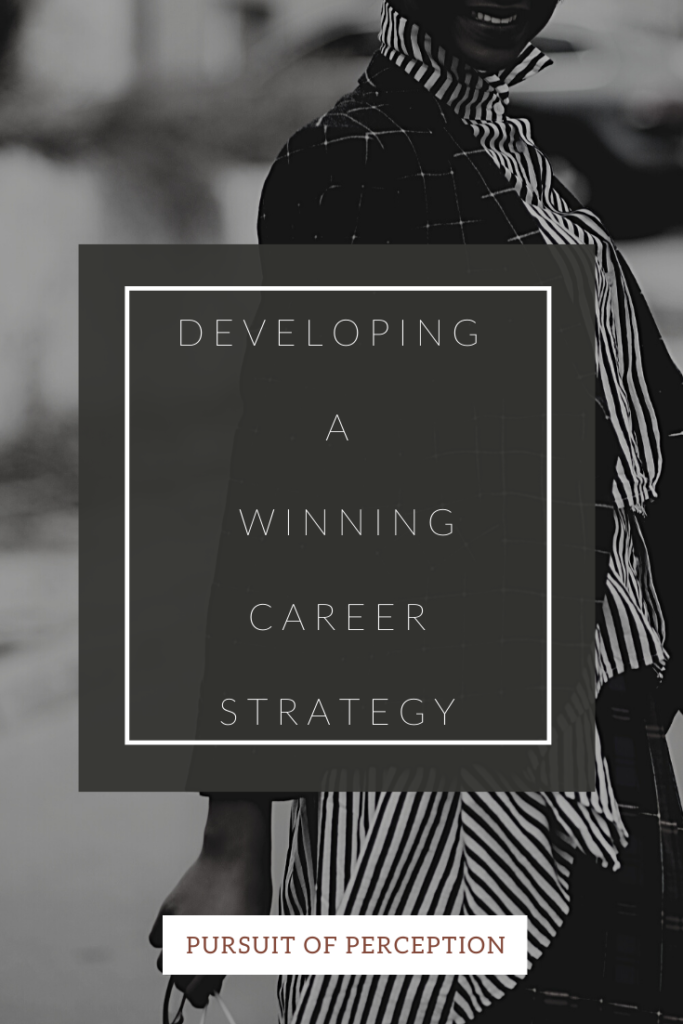
I recently had a conversation with a close family member who is finishing up a graduate degree & looking for opportunities to finally step out & begin a career journey. We were discussing the offer received from a prospective job inquiry & how it essentially aligned with what he wanted to accomplish overall & how it would measure up to some of the other offers he either received or intended to receive. I encouraged him to take the time to visualize & physically write out what his specific career values were, research & then identify what employers would match the vision.
Its ironic that a few days later, when I tuned into the Work Thrive Podcast with Kadie Glenn, she shared a similar message on how the responsibilities of Personal Career Strategies lie with us. And, its true! We can become easily discouraged in our search for the perfect job that checks all our boxes from the jump, reviewing the qualifications of a job posting & assessing how our own experience and expertise measures up, however, knowing what qualifies you is all you need in order to take the appropriate action towards those defined career goals.
With these, you’ll know what steps are necessary to achieve the professional goals you desrire & create an effective career strategy that adds value in the timing and areas you see fit.
Have a Vision
First and foremost, ask yourself what you envision to be your dram career and how it is to support your current lifestyle or the lifestyle you envision having. Whether you’re in search of challenging, meaningful, flexible, or rewarding work, this is yours to decide and the path taken is yours to form based on your needs. Your progress will depend on your current skill level, your determination, and your ability to seek out and obtain or create what will help you grown and achieve both your career. This will also determine the makeup of your lifestyle since, your career will be what supports it.
Foundation
After identifying your career and role you expect to hold, assess your current skill level and the level needed to excel at your dream role. Your current role is a great place to start in identifying key factors for the change you want. Get familiar with your weaknesses and strengths, essentially what makes you stand out amongst your fellow colleagues, and the areas you perform best and worst.
Create actionable goals to transform your weaknesses into more adequate, exceptional qualities. Focus on ways to become better in the areas your are strongest and think of ways you can continue to sustain these. Know what motivates you. Are you currently overlooked for tasks or excluded on projects that you’ve been craving to provide expertise and input on? Study the competition, then make a plan of action to get on their level by developing the skills and knowledge you lack. most importantly, be open to asking questions and getting feedback on ways to improve by consulting the competition as well as management. If your are in tune with your weaknesses, find someone who holds these as strengths, ask for advice. If its something you can study and teach yourself to do without completely involving them then do so.
Discover Opportunities
Be clear with your expectations when developing your career strategy. Are you looking to progress in your current role with your current employer or are you ready to move on and transition someplace new? This is important so you know exactly where to look for growth opportunities. You’ll begin to acquire the required skills and credentials as these appear.
Use the resources within your current organization as a tool for developing your competencies. Reach out to your supervisor or someone in your Compensation/HR department for a job description on the position you’re interested in and ask about potential internal educational development opportunities or read up on your company’s options on supporting external ones.
If focused on moving on from your current role and organization, stay updated on what your top picked companies are doing. Regularly visit the career section on their website and review job roles and requirements that make a candidate a fit.
Develop A Timeline
This of course needs to be realistic. The progress you make will be dependent on lots of factors, some being the available time you have to focus on your goal, how quickly you learn, the time you take to go after those opportunities and how well your strategized your career path and learning to become the ideal candidate for the role. Make time for networking events, career development courses and certifications, or discuss and check in with your mentor on your progress. Make sure it fits with your current obligations and adjust as responsibilities become greater and life happens.
Personal Housekeeping
As you refine and further develop your skills, take up housekeeping by structuring the personal documents that showcase these. Update cover letters, resumes, and professional networking platforms with these newly developed competencies in mind regularly. Request endorsements from colleagues and supervisors, make copies of certifications and other accolades to reference during interviews that will make you stand out from your comparatives and competition.
Execute
When you’re ready to make a move, do it with confidence knowing you now hold the keys to not only be considered for your dream role, but also that you’re well equipped to be the best in your role.
You are the CEO of your life. If you are in a place of thought that your current circumstances are not what you’d envision or are no longer beneficial to you, reworking your career strategy may have the difference you need.